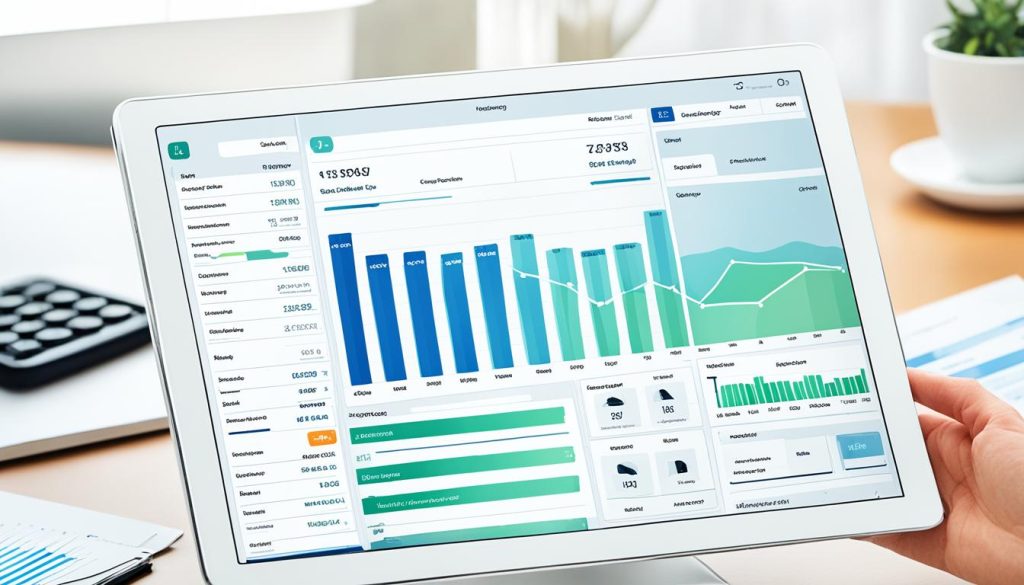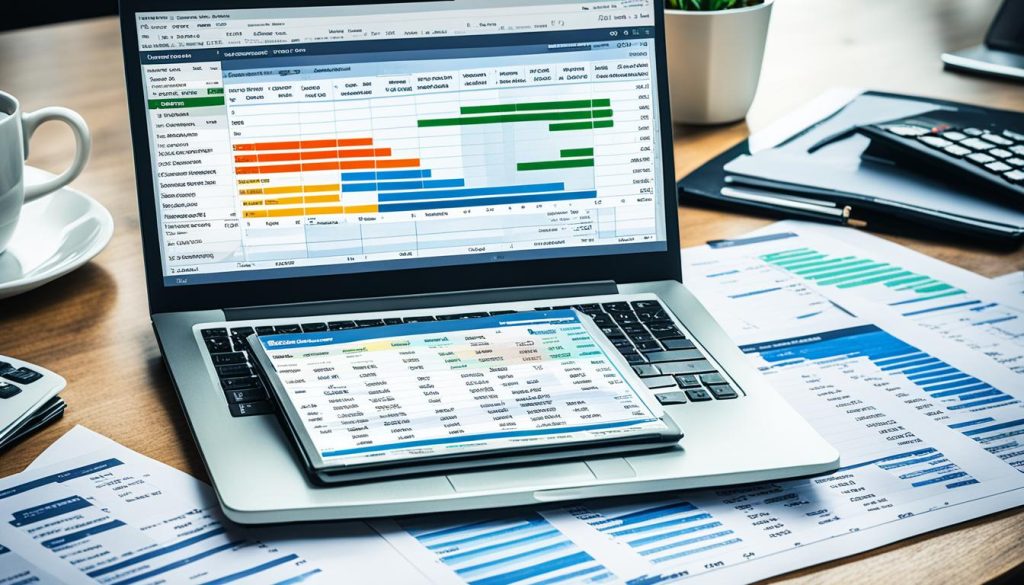Tracking business expenses is crucial for small businesses to effectively manage their finances, make informed decisions, and maximize profits. By monitoring and recording expenses, businesses can gain valuable insights into their spending patterns, identify areas for cost reduction, and ensure tax compliance. In this article, we will explore the importance of expense tracking, discuss the key expenses that should be tracked, and provide practical tips on how to track business expenses efficiently.
Proper expense tracking allows businesses to assess their financial health, plan for future expenses, and allocate resources effectively. It also enables businesses to claim tax deductions, reduce taxable income, and avoid potential audits from tax authorities. Whether you are a startup, solopreneur, or small business owner, tracking business expenses is a fundamental practice that can save you time and money in the long run.
Importance of Tracking Expenses
Proper expense tracking is crucial for maintaining financial health and achieving business goals. By tracking expenses, businesses can anticipate and meet financial obligations, assess areas for cost reduction, and identify trends in spending. Accurate financial records also make it easier to claim tax deductions and reduce tax liability. Implementing an effective expense tracking system and utilizing financial tracking tools can ensure the proper management of small business finances.
When it comes to income and expenditure tracking, businesses need reliable methods to monitor their financial activities closely. Without proper expense tracking, it becomes challenging to gain insights into cash flows, identify unnecessary expenditures, and make informed financial decisions. By tracking expenses, businesses can analyze their spending patterns, identify areas where they can cut costs, and allocate resources effectively.
Financial tracking tools play a significant role in streamlining expense management processes. These tools automate expense tracking, categorization, and reporting, saving time and effort for small businesses. They offer features such as receipt scanning, automatic categorization, and real-time expense reports, making it easy to stay organized and keep track of expenses. Utilizing financial tracking tools improves efficiency, accuracy, and overall financial management.
Track business expenses more efficiently with modern software and apps specifically designed for expense management. These tools enable businesses to digitize receipts, create expense reports, and integrate with accounting systems seamlessly. With mobile apps, businesses can easily track expenses on the go and capture receipts instantly, eliminating the hassle of manual data entry and ensuring accurate and up-to-date financial records.
Benefits of Expense Tracking
- Anticipate and meet financial obligations
- Assess areas for cost reduction
- Identify trends in spending
- Claim tax deductions and reduce tax liability
- Streamline expense management processes
- Improve overall financial management
Tracking business expenses is essential for proper financial management and long-term success. By implementing reliable expense tracking systems and utilizing financial tracking tools, businesses can optimize their financial processes, make informed decisions, and ensure the responsible management of their income and expenditure.
![]()
| Expense Tracking Tools | Key Features |
|---|---|
| Accounting Software |
|
| Expense Management Software |
|
| Mobile Expense Tracking Apps |
|
Choose the right expense tracking tools and implement them in your small business to enhance financial tracking processes and optimize expense management. By leveraging technology, you can save time, improve accuracy, and make better-informed financial decisions.
What Business Expenses Should I Track?
To effectively track business expenses, it is important to record various types of expenses. By accurately tracking expenses, businesses can gain valuable insights into their financial health and make informed decisions. Here are some key expenses that should be tracked:
1. Advertising and Marketing Costs:
Track all expenses related to advertising campaigns, online marketing efforts, social media promotions, and any other marketing activities.
2. Bank Fees and Commissions:
Keep a record of bank charges, transaction fees, and commissions paid for financial services. This includes fees for business bank accounts and payment processing services.
3. Software and Utilities:
Track expenses for software subscriptions, cloud storage, website hosting, and any other utilities necessary for running your business.
4. Office Supplies:
Record expenses for office stationery, printer ink, paper, pens, and other supplies essential for day-to-day business operations.
5. Printing, Postage, and Delivery:
Track expenses for printing marketing materials, postage for mailings, and any costs associated with shipping and delivery services.
6. Mileage:
Keep a log of business-related travel expenses, including mileage, fuel costs, and maintenance expenses for company vehicles.
Consider using online or app-based tools for expense tracking, as they provide convenience and accessibility. These tools allow you to easily categorize expenses, generate expense reports, and track spending in real-time. By properly tracking all expenses, including small purchases and travel expenses, you can paint a complete picture of your business’s financial health.

How to Track Business Expenses?
Tracking business expenses is crucial for effective financial management and ensuring compliance with tax regulations. By implementing a systematic approach, businesses can accurately monitor their expenses and make informed decisions. Here are five steps to help you track your business expenses:
- Open a Separate Business Account: Start by opening a dedicated business account for all your transactions. This will help you keep your personal and business finances separate, making it easier to track and categorize expenses.
- Choose Accounting Software: Select an accounting software that offers robust expense tracking features. Look for software that integrates with your financial institutions and allows you to import transactions seamlessly.
- Connect Financial Institutions: Connect your business bank accounts and credit cards to your accounting software. This will automate the process of tracking and categorizing expenses, saving you time and effort.
- File and Organize Receipts: Properly filing and organizing receipts is essential for accurate expense tracking. Maintain a system where you can easily store and retrieve receipts when needed. Consider using software or mobile apps that allow you to digitize and sync your receipts with your accounting records.
- Review and Analyze Expense Reports: Regularly review your expense reports and analyze the data to gain valuable insights. Identify trends, assess spending patterns, and make informed financial decisions based on the information you gather.
By following these steps, you can establish a solid foundation for tracking your business expenses effectively. Remember, accuracy and consistency are key to maintaining a clear financial picture and ensuring compliance with tax requirements.

The Benefits of Using Google Sheets for Expense Tracking:
Google Sheets is a popular and accessible tool that can be used for expense tracking. It offers several advantages:
- Compatibility: Google Sheets is compatible with various devices and can be accessed from anywhere with an internet connection.
- Collaboration: Multiple team members can work on the same Google Sheet, making it easy to collaborate and update expense tracking in real time.
- Customization: Google Sheets allows you to customize your expense tracking sheet according to your specific business needs, creating a tailored tracking system.
- Integration: Google Sheets integrates seamlessly with other Google Workspace apps, such as Google Forms and Google Calendar, providing a comprehensive suite of tools for business management.
Using Google Sheets for expense tracking can be an efficient and cost-effective solution for small businesses. It provides a versatile platform that can be tailored to suit various tracking requirements. Whether you choose Google Sheets or another accounting software, the key is to find a solution that meets your business’s unique needs and simplifies the expense tracking process.
| Expense Tracking Software | Key Features |
|---|---|
| QuickBooks | Automated expense categorization, receipt capture, real-time financial reporting |
| Xero | Bank reconciliation, receipt scanning, mobile app integration |
| Wave | Free accounting software, receipt scanning, expense categorization |
| Zoho Expense | Automated expense tracking, receipt management, expense policy enforcement |
Optimising Business Expense Tracking with Technology
Utilizing technology can greatly enhance business expense tracking. By leveraging expense management software, accounting software, expense tracking software, and other business expense tracking tools, businesses can optimize their expense tracking processes and improve overall financial management.
Expense management software offers a comprehensive suite of features designed to streamline expense recording, categorization, and reporting. With expense management software, businesses can easily capture and consolidate expense data, automate expense approvals, and generate detailed expense reports. These tools not only save time but also provide real-time financial data, enabling businesses to make more informed decisions.
Accounting software also plays a crucial role in expense tracking. In addition to general accounting functionalities, such as managing transactions and generating financial statements, accounting software offers expense tracking capabilities. By integrating expense tracking features into accounting software, businesses can centralize their financial data, ensuring accuracy and efficiency in expense management.
Expense tracking software is another valuable tool for businesses. Specifically designed to focus on managing and monitoring business expenses, these tools provide robust functionality for expense tracking. They allow businesses to record expenses, categorize them, and monitor spending trends. Expense tracking software can also automate repetitive tasks, such as receipt digitization and expense categorization, further streamlining the expense tracking process.
One of the key benefits of leveraging technology for expense tracking is automation. By automating repetitive tasks, businesses can save valuable time and reduce manual errors. This automation can include features like automatic receipt scanning, expense categorization based on predefined rules, and integration with financial institutions to import expense data directly into the software. The ability to automate these tasks reduces the administrative burden of expense tracking, allowing businesses to focus on more strategic activities.
Furthermore, expense management software, accounting software, and expense tracking software provide businesses with real-time financial insights. By having access to up-to-date expense data, businesses can make informed decisions regarding budgeting, cost control, and resource allocation. Real-time data also enables businesses to identify areas of overspending or potential cost savings, supporting more efficient financial management.
In summary, by leveraging expense management software, accounting software, expense tracking software, and other business expense tracking tools, businesses can optimize their expense tracking processes. These tools offer streamlined expense recording, categorization, and reporting, saving time and providing real-time financial data. Additionally, automation features reduce manual errors and administrative burden. By adopting technology for expense tracking, businesses can enhance efficiency, improve financial management, and make data-driven decisions.
| Expense Management Software | Accounting Software | Expense Tracking Software |
|---|---|---|
| Streamlines expense recording, categorization, and reporting | Integrates expense tracking into general accounting functionalities | Focuses specifically on managing and monitoring business expenses |
| Automates repetitive tasks and saves time | Provides real-time financial data for informed decision-making | Automates expense tracking processes and reduces manual errors |
| Centralizes expense data and supports detailed expense reporting | Enables accurate expense management and financial analysis | Identifies spending trends and supports cost control |
Common Mistakes to Avoid
When tracking business expenses, it is important to employ effective strategies to avoid common mistakes that can hinder accurate expense tracking and financial management. By following best practices and utilizing expense tracking spreadsheets or software, businesses can streamline their processes and ensure compliance with tax regulations. Here are some common mistakes to avoid:
1. Neglecting Proper Documentation
One of the most common mistakes is failing to keep proper documentation of receipts and expenses. Receipts serve as evidence of business expenses and are necessary for accurate tracking and tax compliance. Without adequate documentation, businesses may face difficulties in supporting their expense claims and risk potential tax penalties.
2. Irregular Account Reconciliation
Regularly reconciling accounts is crucial for effective expense tracking. Failing to reconcile accounts regularly can lead to discrepancies, misinterpretation of financial data, and inaccurate expense reports. By reconciling accounts promptly, businesses can identify any errors or discrepancies and ensure the accuracy of their financial records.
3. Overlooking Small Expenses
Small expenses tend to be easily overlooked but can add up significantly over time. It is important to track and include all expenses, regardless of their size, in order to gain a comprehensive understanding of the business’s financial health and identify areas for potential cost reduction.
4. Incorrect Categorization of Expenses
Improper categorization of expenses can lead to confusion and inaccurate financial reporting. It is essential to establish clear expense categories and consistently assign expenses to the appropriate category. This ensures that expenses are accurately accounted for and facilitates thorough analysis of spending patterns.
5. Choosing Ineffective Expense Tracking Strategies
Implementing clear expense tracking strategies is crucial for efficient financial management. Businesses should explore different expense tracking methods, such as utilizing expense tracking spreadsheets or software, to find the approach that works best for their specific needs. Effective strategies help streamline the tracking process and provide a solid foundation for accurate financial reporting.
To further enhance expense tracking processes, businesses can consider using popular software applications, such as Excel, to track business expenses. Here’s a table summarizing the benefits of using an expense tracking spreadsheet:
| Benefits of Expense Tracking Spreadsheet |
|---|
| 1. Easy and customizable expense categorization |
| 2. Centralized storage and organization of expense data |
| 3. Efficient tracking of income and expenditure |
| 4. Enhanced visibility and analysis of spending patterns |
| 5. Flexibility to create personalized tracking systems |

By avoiding common tracking mistakes and implementing effective strategies, businesses can optimize their expense tracking efforts, ensure accurate financial reporting, and make informed financial decisions.
Conclusion
Properly tracking business expenses is essential for effective financial management. By implementing an expense tracking system and utilizing technology, businesses can save time and money, make informed decisions, and maintain financial health. Whether using accounting software, spreadsheets, or expense tracking apps, accurately tracking expenses ensures compliance with tax regulations and provides a clear picture of the business’s financial position.
One effective way to keep track of business expenses is by using Excel. With its customizable spreadsheets and formulas, Excel allows businesses to create comprehensive expense tracking systems. By categorizing expenses, creating budgets, and utilizing functions for calculations, businesses can easily analyze their income and expenditure, making business finance management more efficient.
For self-employed individuals, tracking expenses is especially important as it helps determine business profitability and tax deductions. HMRC may ask for proof of expenses, so it is crucial to keep proper documentation, such as receipts and invoices. While there is no specific limit on how much expenses can be claimed without receipts in the UK, it is best to retain supporting documents for all expenses claimed.
In conclusion, tracking business expenses in Excel or with the help of accounting software ensures accurate financial records and compliance with tax regulations. Technology and proper expense tracking strategies not only save time and money but also provide valuable insights into the financial health of the business. By staying organized and aware of HMRC requirements, businesses can effectively track their expenses and optimize their financial management.
FAQs
Why is tracking expenses important for small businesses?
Tracking expenses allows businesses to analyze finances, make informed decisions, claim tax deductions, reduce taxable income, meet financial obligations, identify cost reduction opportunities, and monitor spending trends.
What types of business expenses should I track?
You should track various expenses such as advertising and marketing costs, bank fees, software and utilities, office supplies, printing, postage and delivery, and mileage.
How can I track business expenses in Google Sheets?
To track expenses in Google Sheets, create a spreadsheet, list expense categories, record transactions, and use formulas to calculate totals and generate reports.
What is the best way to track business expenses for free?
The best way to track business expenses for free is to use online tools or mobile apps that offer expense tracking features. You can also utilize spreadsheet templates to manually record and categorize expenses.
How do I keep track of business expenses for taxes?
To keep track of business expenses for taxes, maintain proper documentation of receipts and expenses, reconcile accounts regularly, categorize expenses correctly, and utilize expense tracking spreadsheets or software.
How can technology optimize business expense tracking?
Technology can streamline expense recording, categorization, and reporting. Expense management, accounting, and expense tracking software automate tasks, save time, and provide real-time financial data.
Will HMRC ask for proof of expenses?
Yes, HMRC may ask for proof of expenses during tax audits or investigations. It is important to keep proper documentation, including receipts and invoices, to substantiate expenses.
How much expenses can I claim without receipts in the UK?
In the UK, you should generally keep receipts for all business expenses. While there is no fixed amount you can claim without receipts, HMRC expects businesses to maintain proper records to support their claims.





